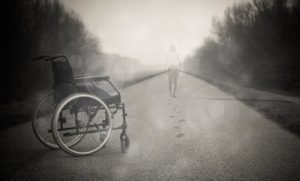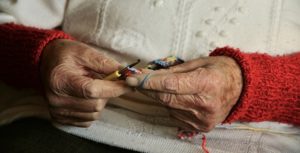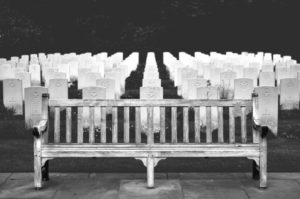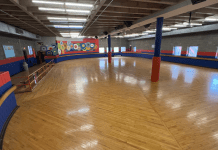Death is something no one wants to face, no matter how old or how “prepared” you may think you are. Yes, there are times where someone’s passing may just be “for the best” if they’ve been dealing with being sick and managing a health condition or physical and mental deterioration that has affected their quality of life as well as those who are caring for them. Our family has unfortunately had to face this in the past few years, with my son’s curiosity providing us an opportunity to curate conversations that are both informative and age appropriate. In no way am I implying I’m an expert at handling these difficult situations, however, the below tips are what I keep in mind as I share needed information with my son.
Transparency Throughout
It has always been my policy not to withhold information from my son. Not to say that I give him every last detail, but sharing with him when someone has been diagnosed with something, has undergone a treatment or surgery or has experienced something that has set them back. His thoughtful little soul wants to know who in our lives may need an extra hand, a picture colored for them, or some cheering up. We have found that giving him time to ask questions instead of waiting until things are really bad, and possibly past the point where he could have meaningful interaction with the individual has helped him to feel aware and important. It also helps us to talk about why things may happen and how some things can be prevented while others causes are unknown. It’s also helped us to talk about blood and organ donation, healthy habits and personal hygiene. This approach seems to help him take his time to process while also giving him time to get comfortable with what we can and can not do to help the person and expectations and warning if things have changed rapidly.

Provide Examples, Parallels and Please Use Proper Terms
My son’s brain is analytical at times. For those we know who are handling health issues over time, we’ve made the connection of the human body to a machine. We have discussed the fact that some machines can be repaired, pieces replaced, and others tuned up. We talk about how machines need to be used or they get rusty or don’t work as well. We use the machine reference to also explain how sometimes, they just can’t be fixed, and they do sometimes break to the point where they no longer can work – though we can have memories of when they did. We’ve used trains specifically, as there are many types, sizes, and functions for trains, and he’s also seen them in museums or even in yards as they’ve broken down. We are spiritual, not so much religious, so we focus on the physical body being something that no longer works, but the memories, the energy that was inside is something that can still fill us with hope and warmth and comfort. One important aspect of all of this though is to use proper anatomical terms when connecting back to our loved one’s story. I don’t make up names for body parts, as each is unique, has a function and ultimately something I want my kids to understand and learn about. There are many great apps available that show how the human body works, focusing on different systems at a time, that also facilitate this conversation.
Don’t Be Afraid to Show them Aging
If you have older adults in your life that may be unwell, please visit them, and bring your children with. It means so much to your loved ones, but it is such a great opportunity for the children, too. We try to focus on how we are all the same inside but may look different on the outside. We’ve prepped my son for what he may notice or experience and helped him to know what to do. With technology, you can show images, FaceTime or find other means for increasing their comfort in advance of a visit.
For example, when my grandma was in an assisted living facility, we’d bring my son to a common area to spend time with her and explain that her other friends may want to say hello, and it’s ok to talk to them. We point out that because she’s in a wheelchair, she will need help to move around so there may be others around that we don’t know, but we can treat them as our friends. My grandma was losing both her hearing and her eyesight, so we had to explain to my son that she may not look right at him, want to hold his hand more, and he may have to answer her questions more often. He was absolutely wonderful with spending time with her and not being afraid. Having the chance to explain in advance helped prevent him from blurting out inappropriate questions at the moment as well as show a bit more patience and grace.
Take Them to the Funeral
My small toddler two-year-old twins are only still when they’re sleeping, so no, I haven’t brought them to a funeral just yet, but my oldest son has been to more than one and I am so glad I’ve taken him. He had a chance to speak on a microphone sharing memories of an uncle. He’s had the chance to comfort our relatives as they may show emotion before, during and after the ceremony. Most notably being my own dad, his grandfather. I think it’s so important for kids to see that it’s ok to be sad sometimes but also to hear how we celebrate the memories and the legacy of those we’ve lost. Kids often bring joy to the events surrounding someone’s passing, so while you may worry you’ll be embarrassed, or it may be too much for them to be around, I think they play an important role of demonstrating the youth, life and vitality of the family the individual is leaving behind. Of course, each family is unique in what your ceremony may look like and there can be different questions that arise based on the ceremony – such as if there is an open casket, or there is no casket. Helping kids understand that life is a gift and to honor those we love in whatever way is chosen helps encourage acceptance and awareness in a different way than they may be used to.

While I don’t wish anyone has to go through this with small kids as grieving while you’re also tending to and answering the questions of your own tiny human can be a challenge, know that they can be a light and a comfort. I encourage you to keep them in the loop to help foster a better more connected relationship with your own child, as I know this has helped us immensely.













Thank you for a thoughtful and helpful discussion on a difficult topic.
This is a needed dialogue. We have removed ourselves from the process of illness, death and dying and left it up to health care professionals.
I agree open and well thought out dialogue are helpful to children through this process.
I love the machine analogy you offer.